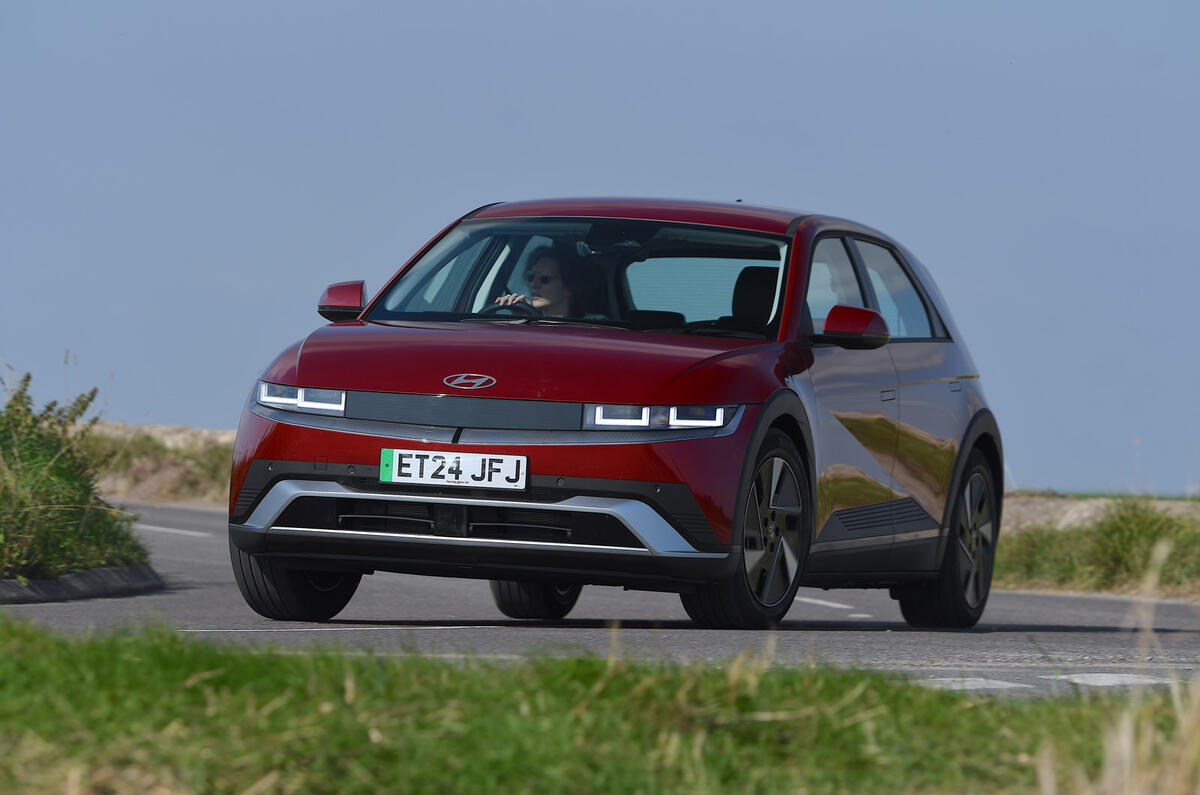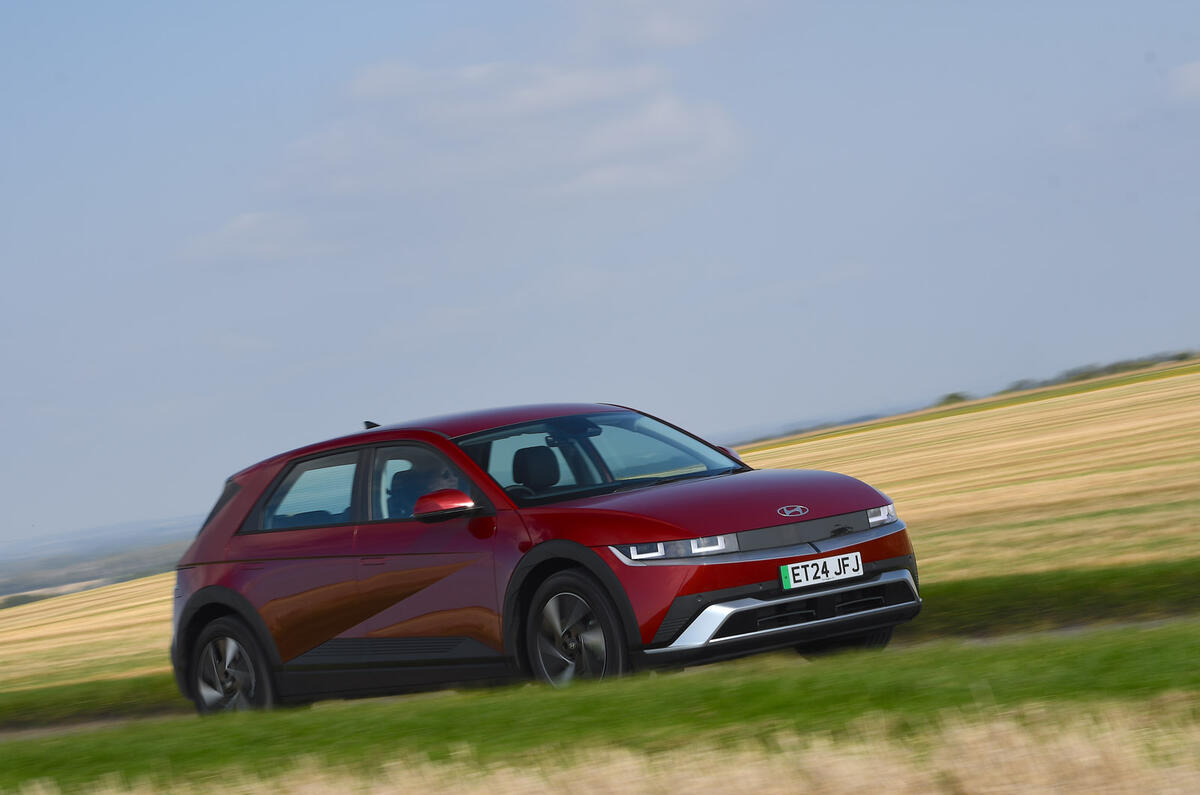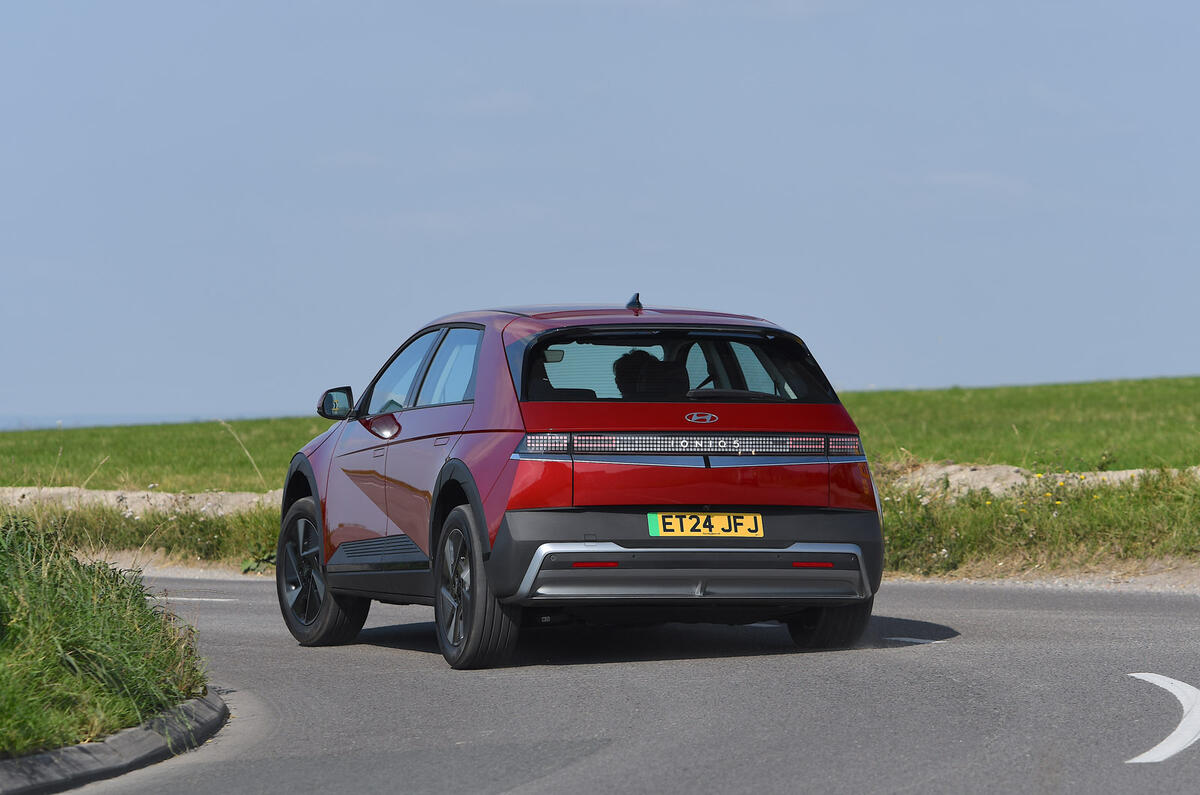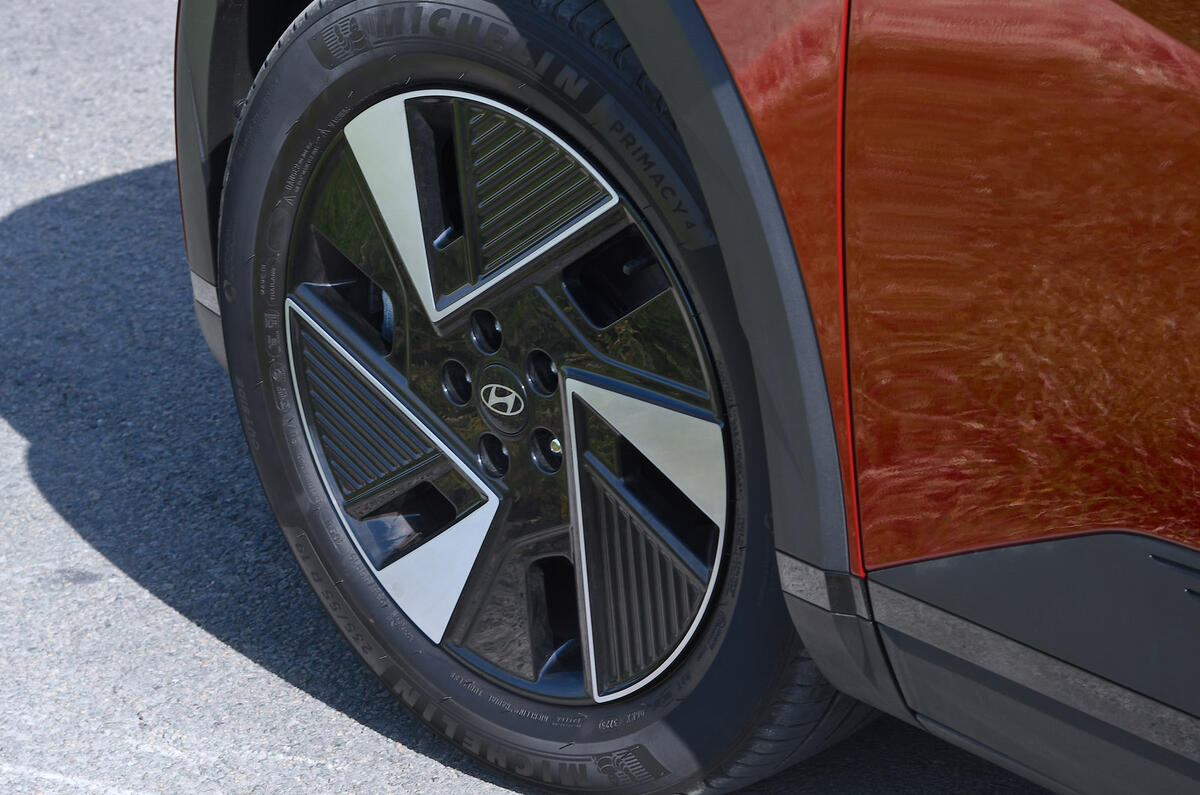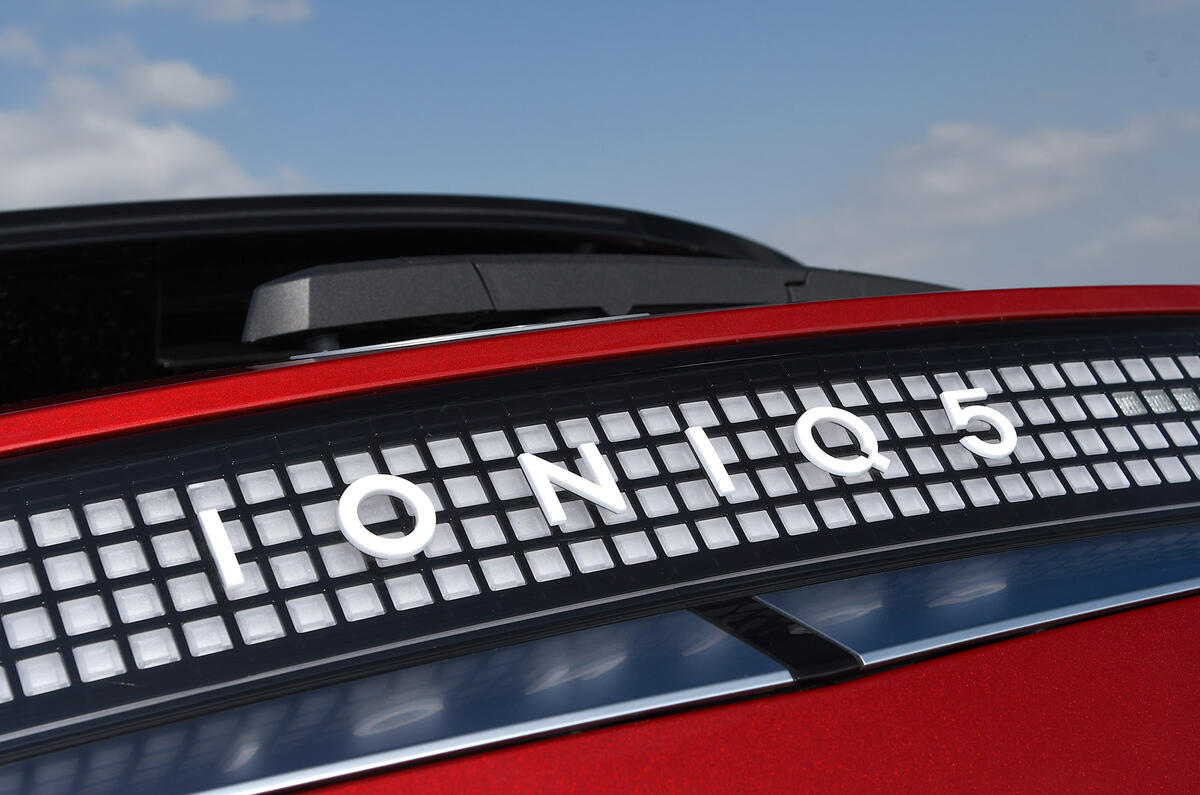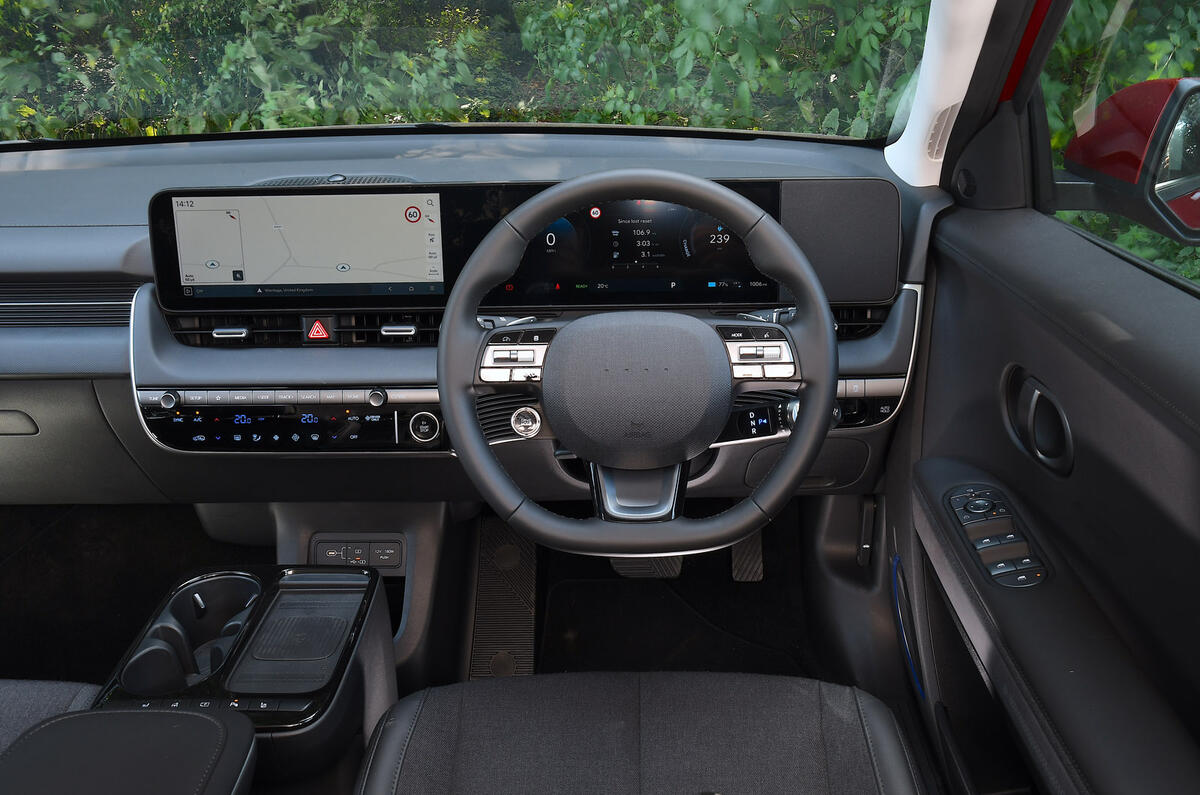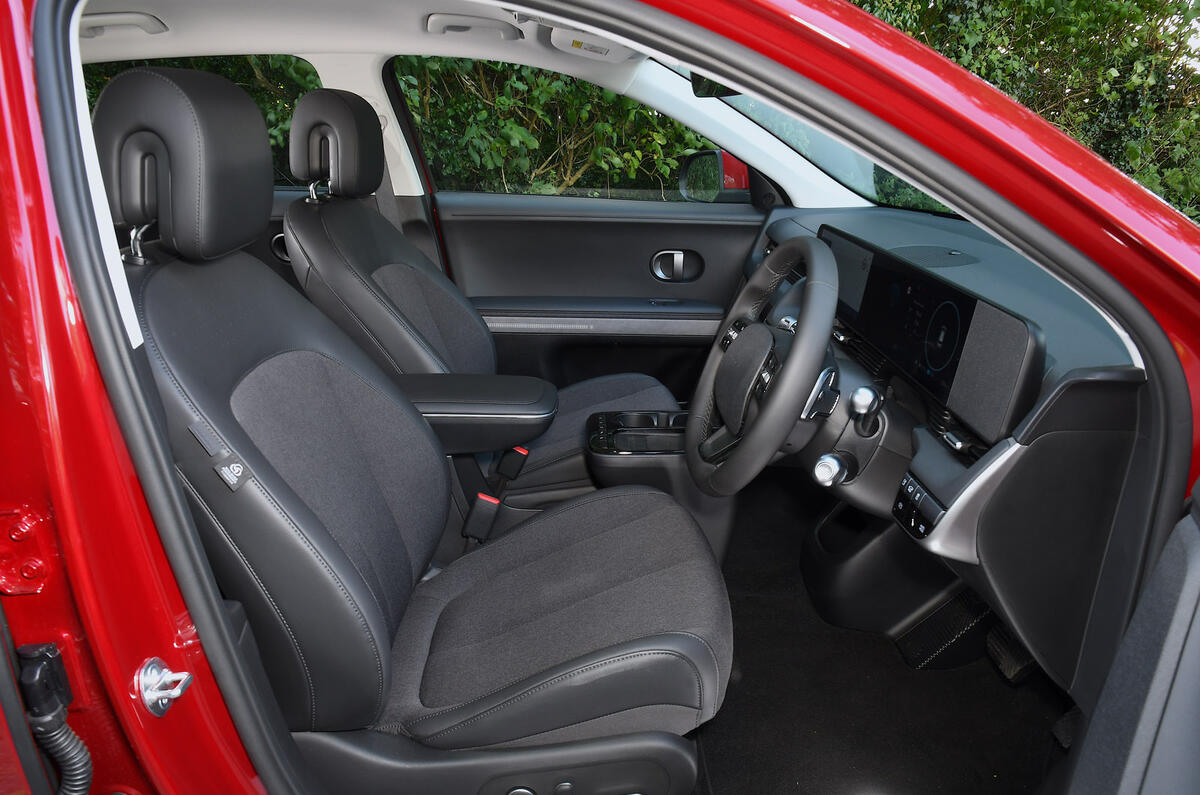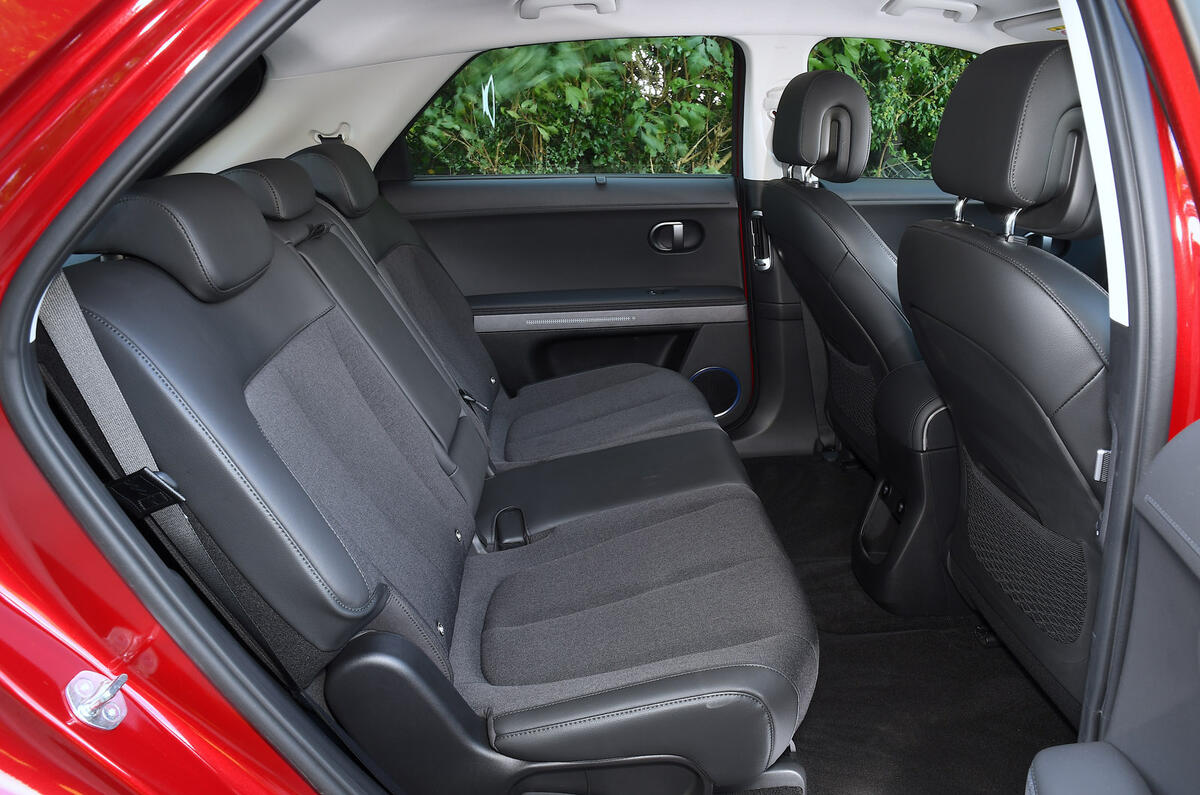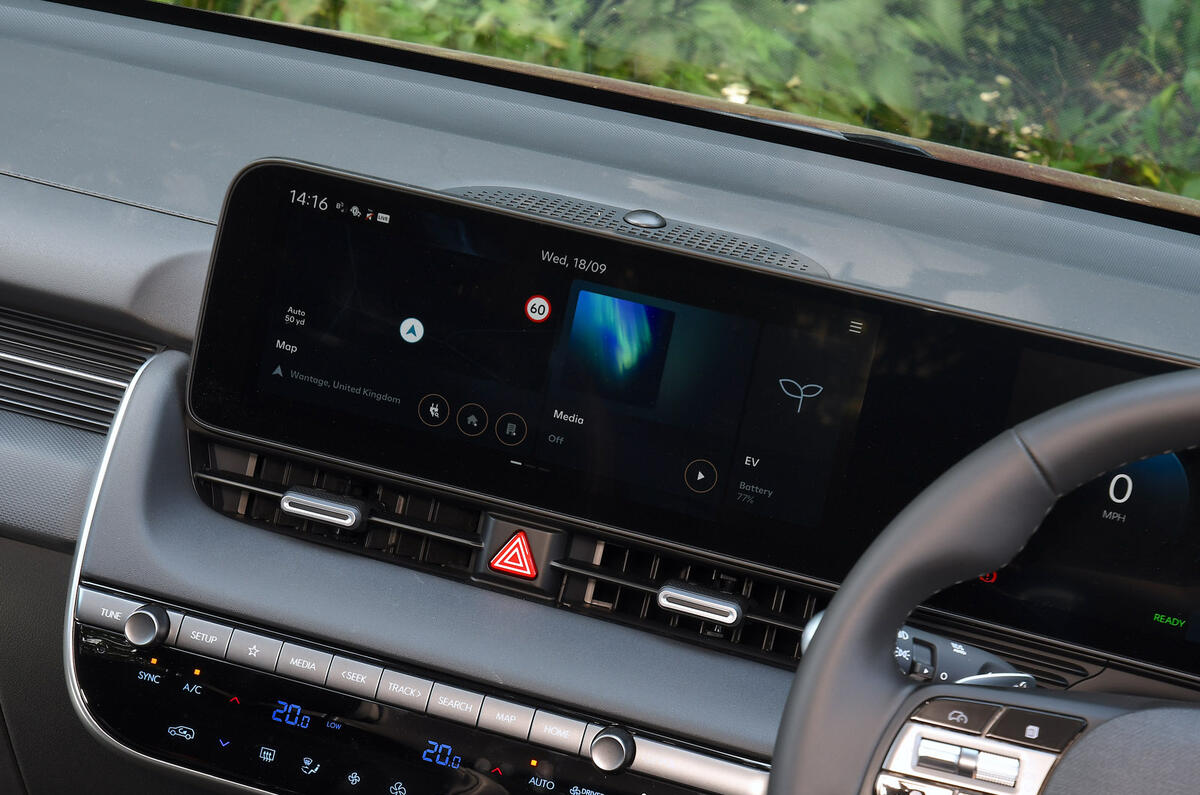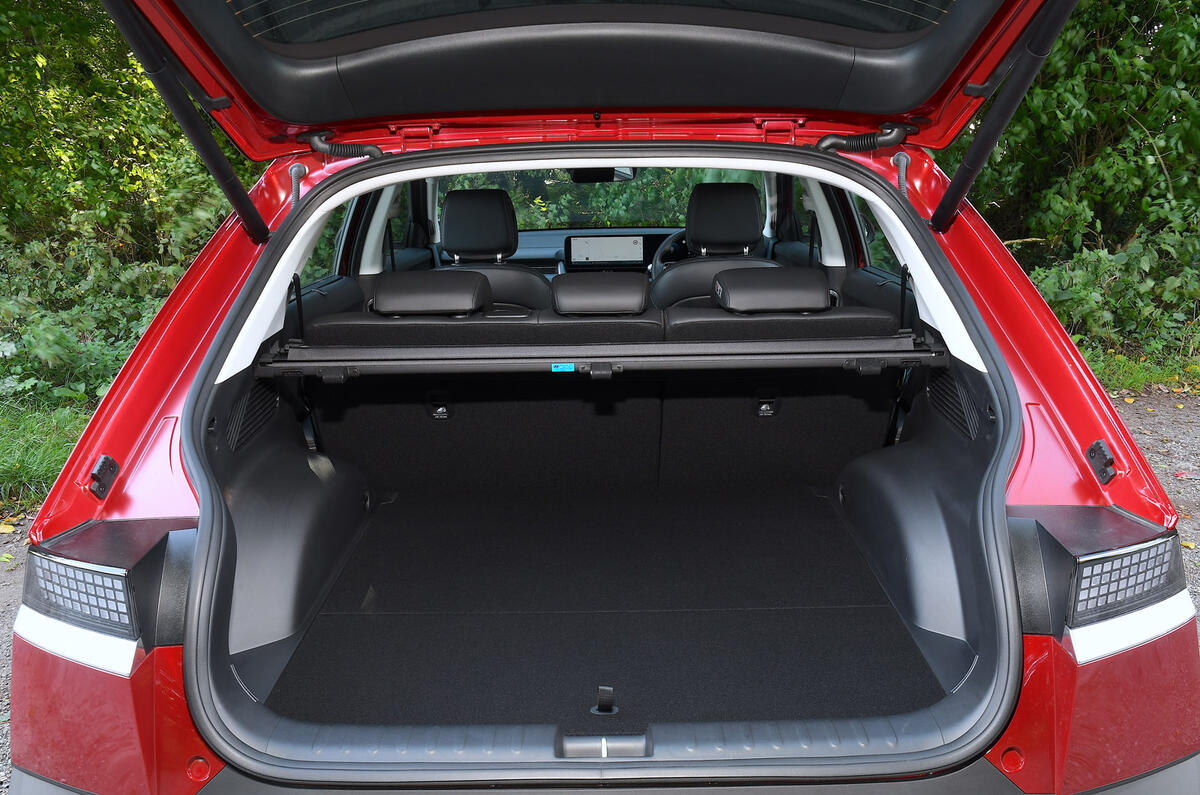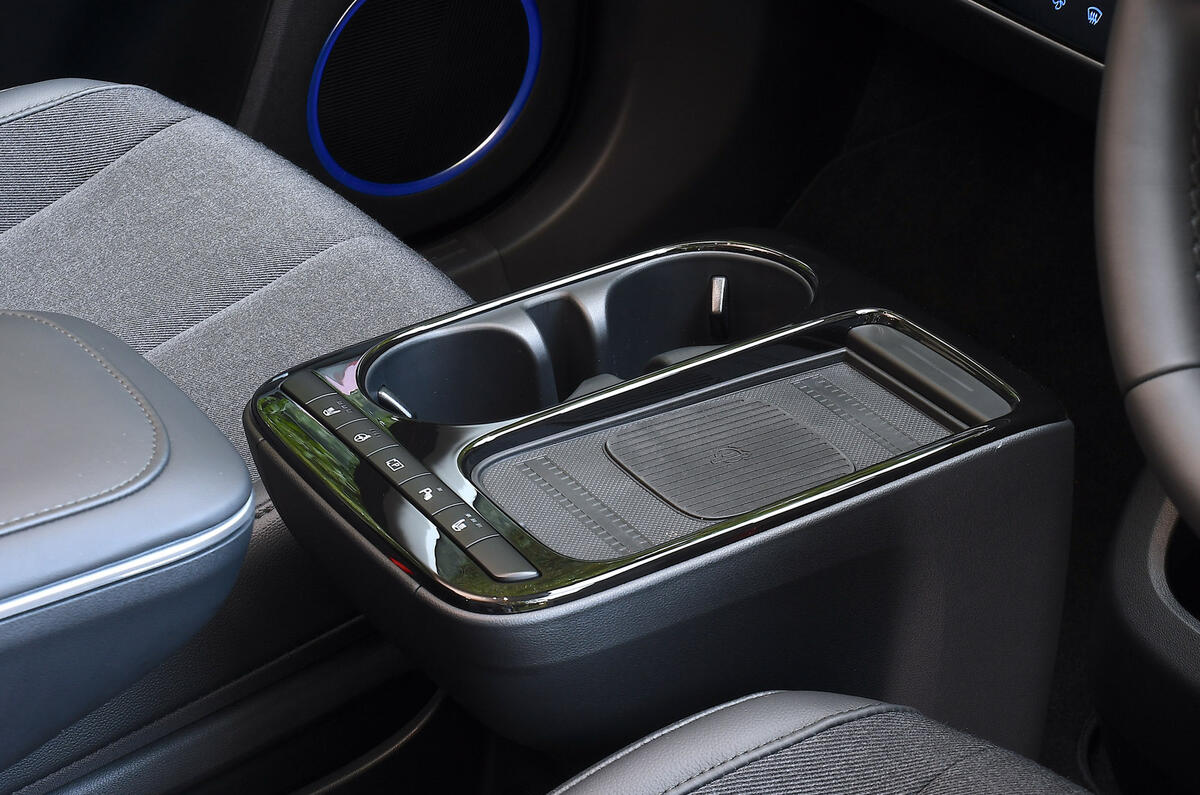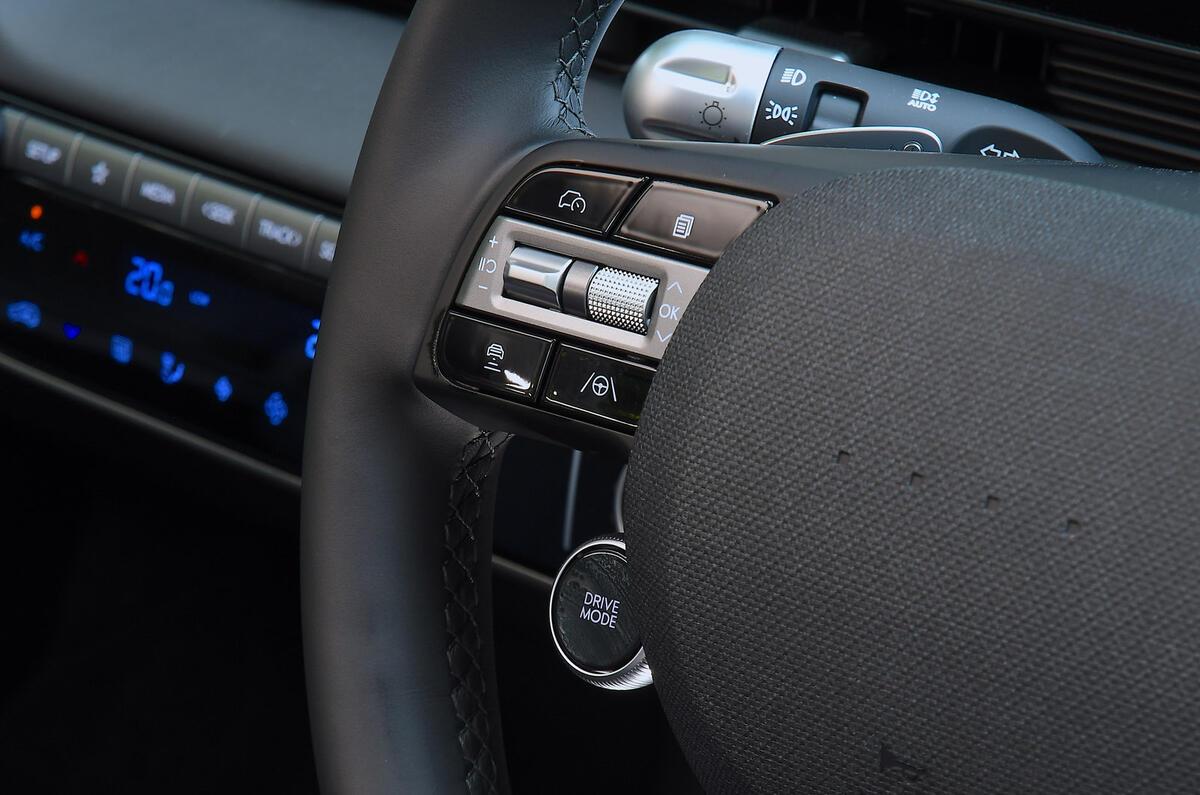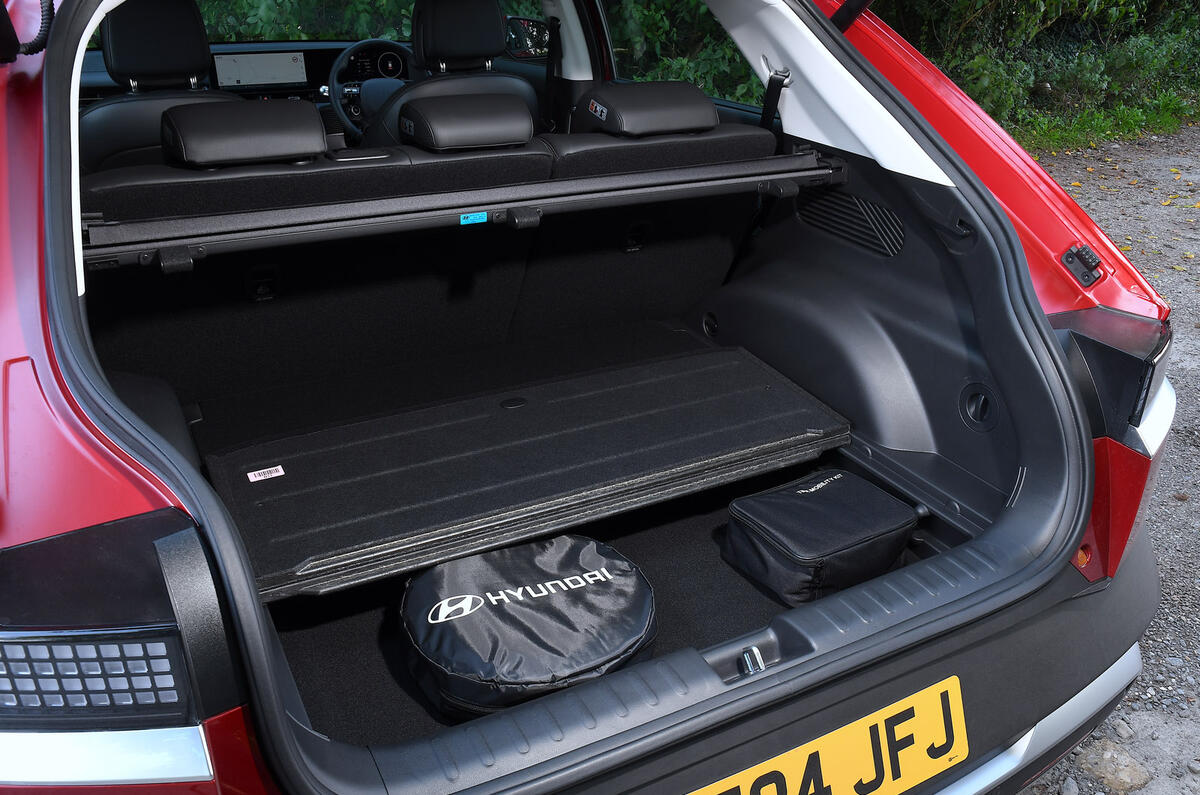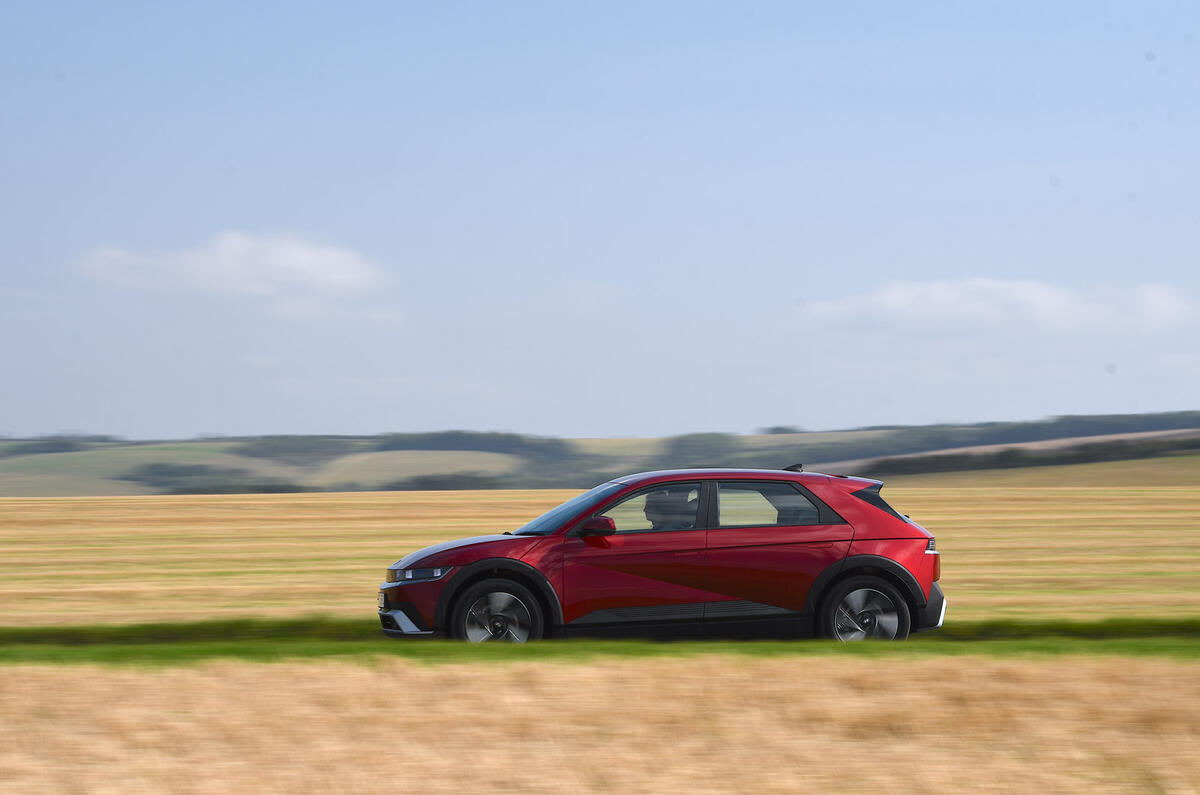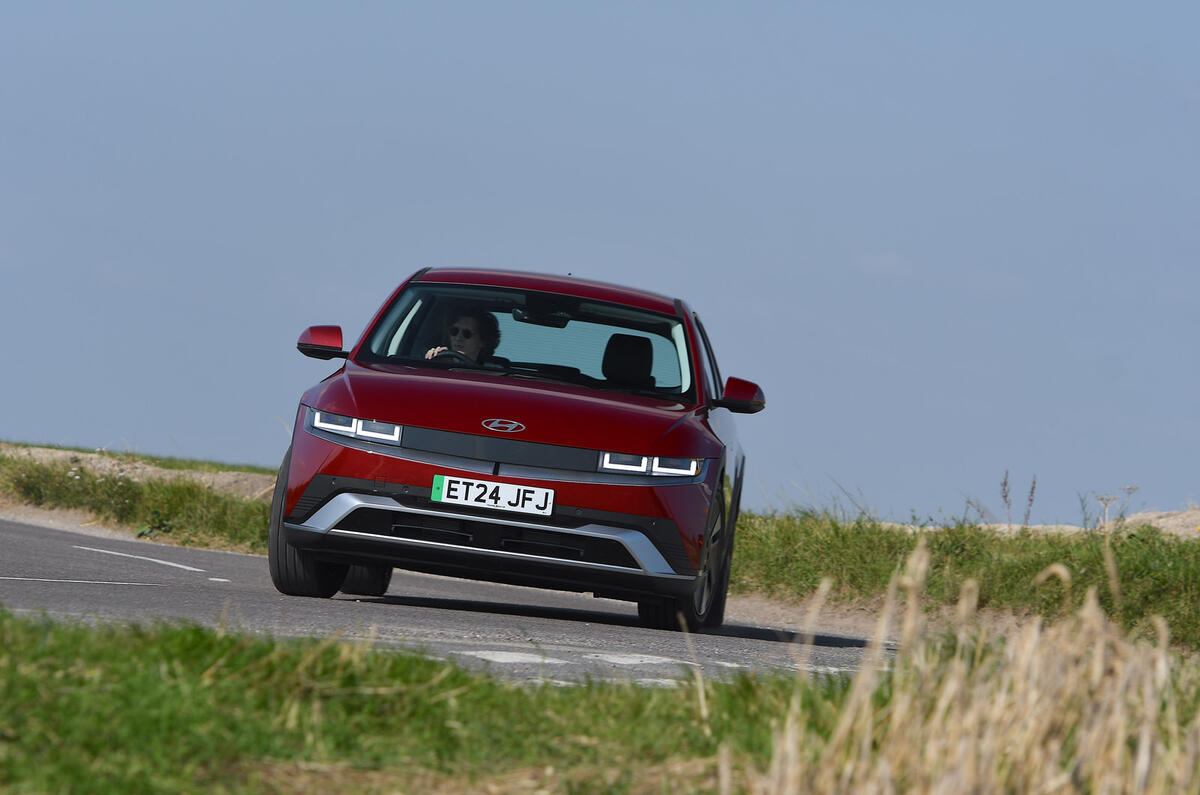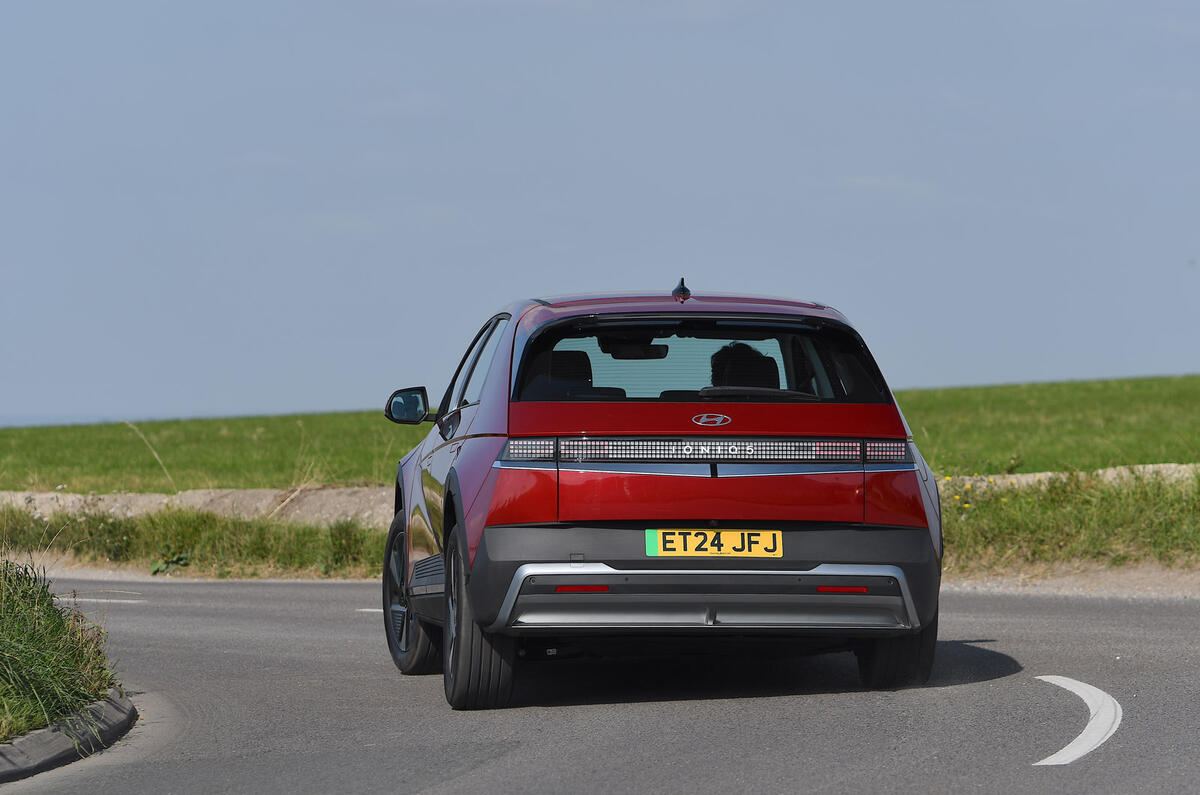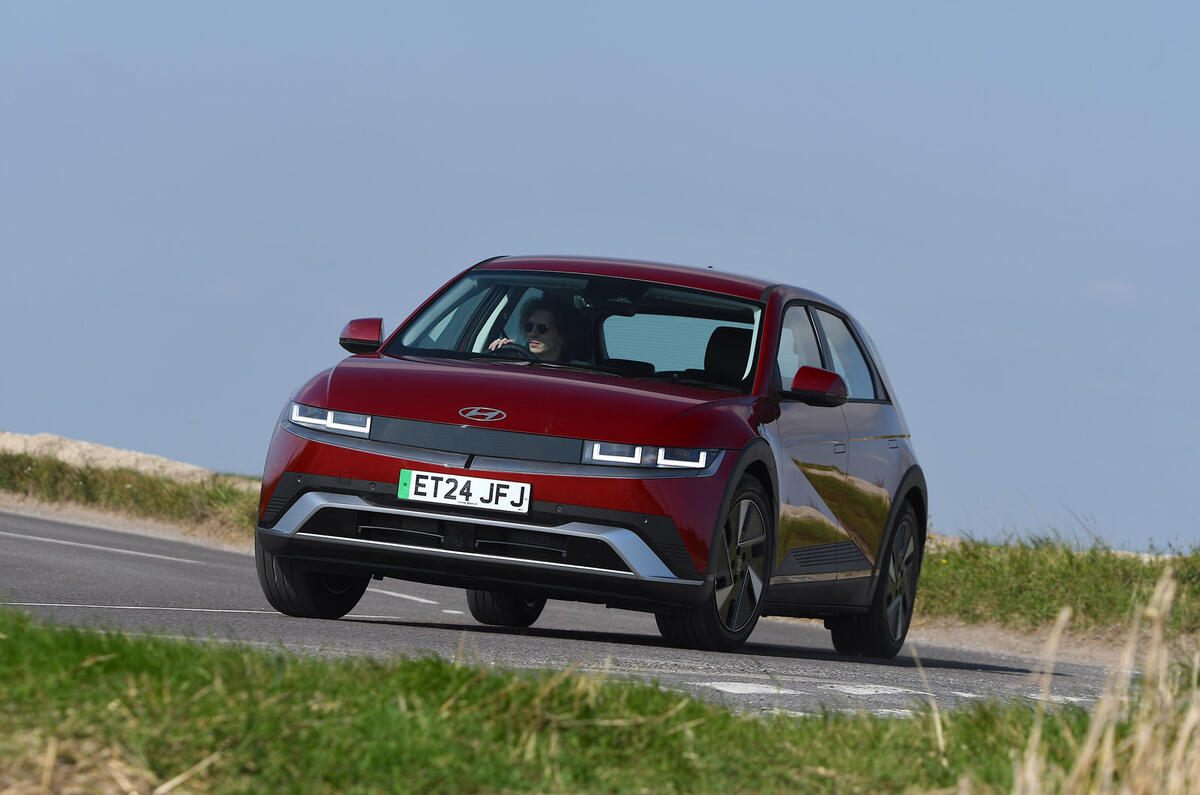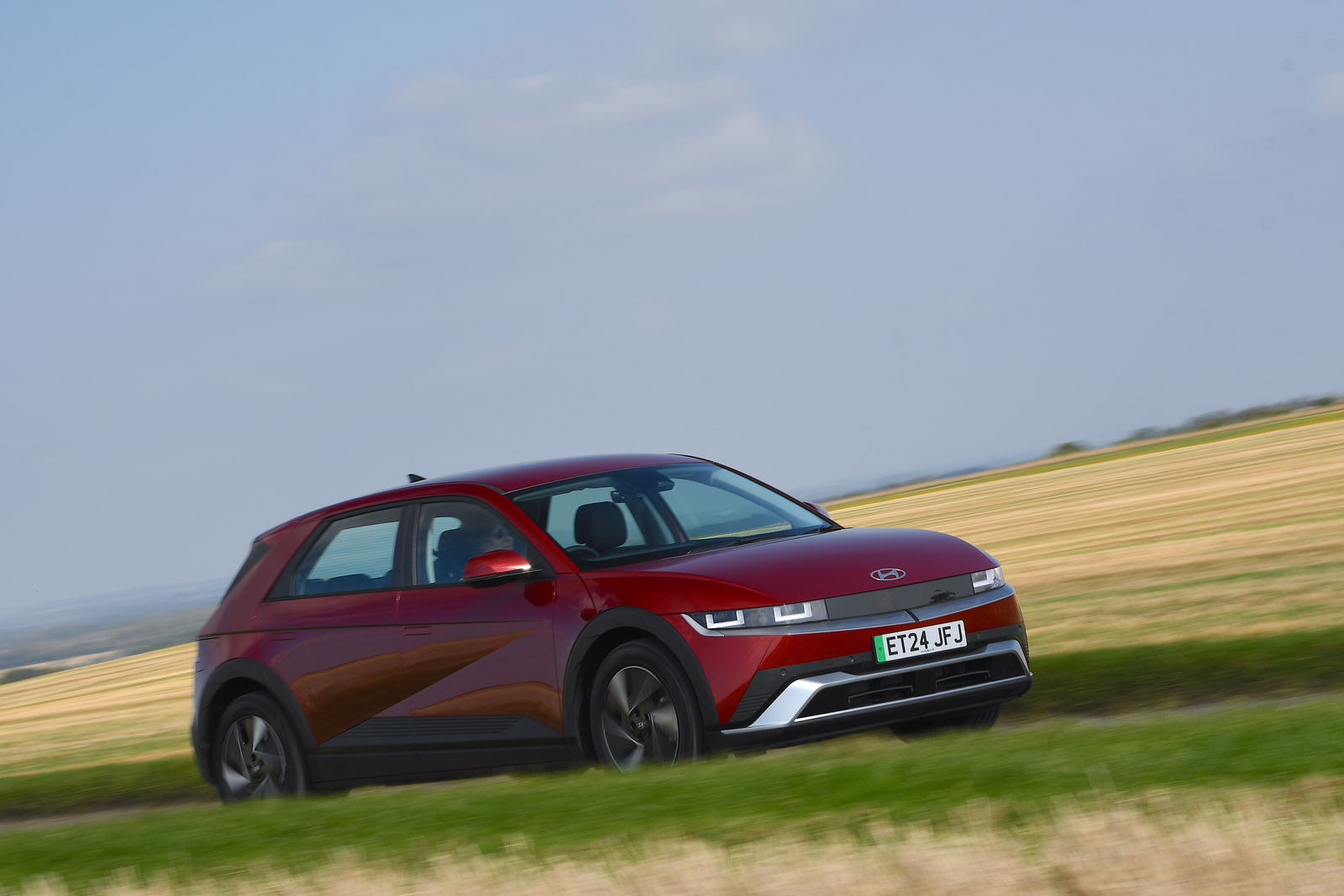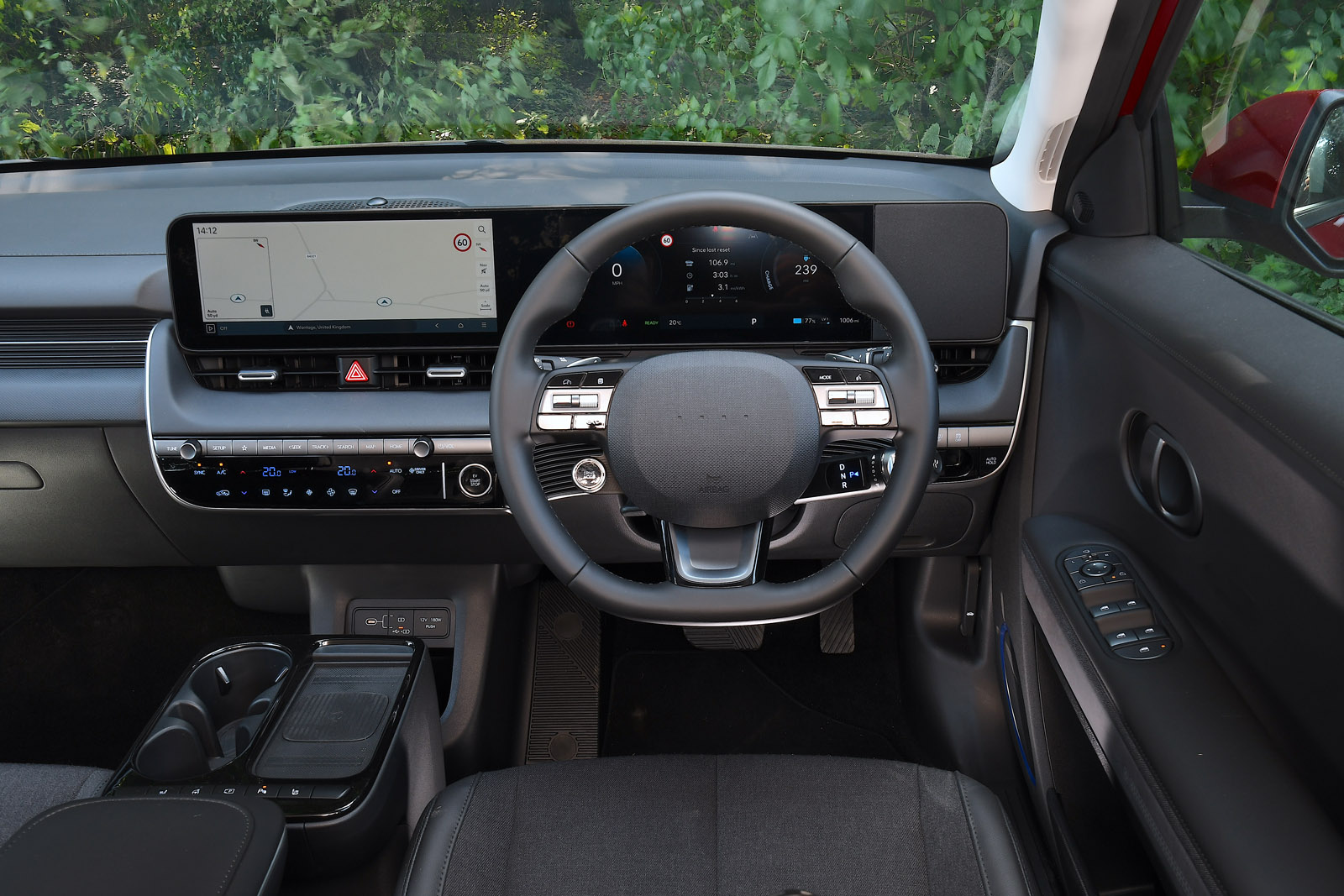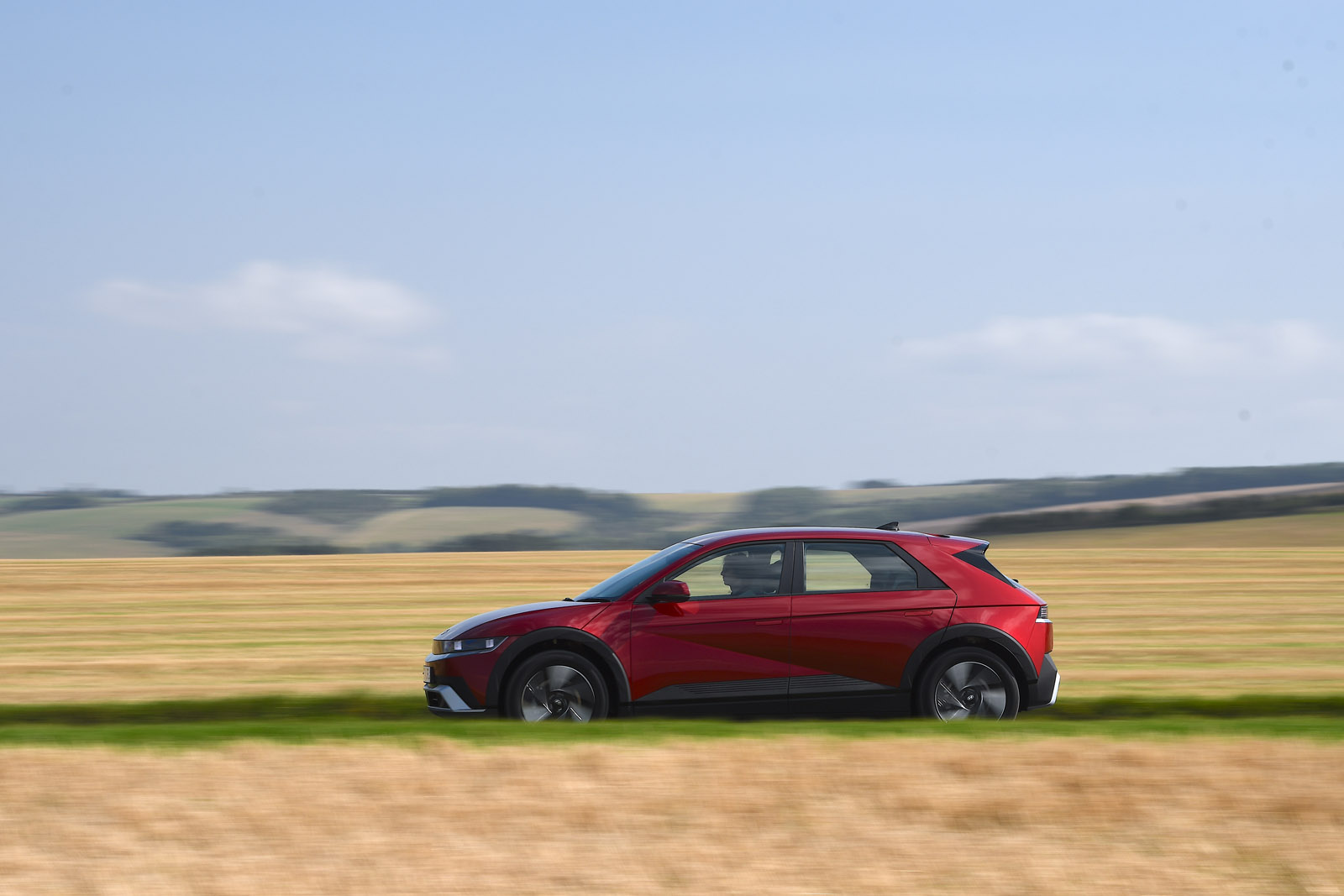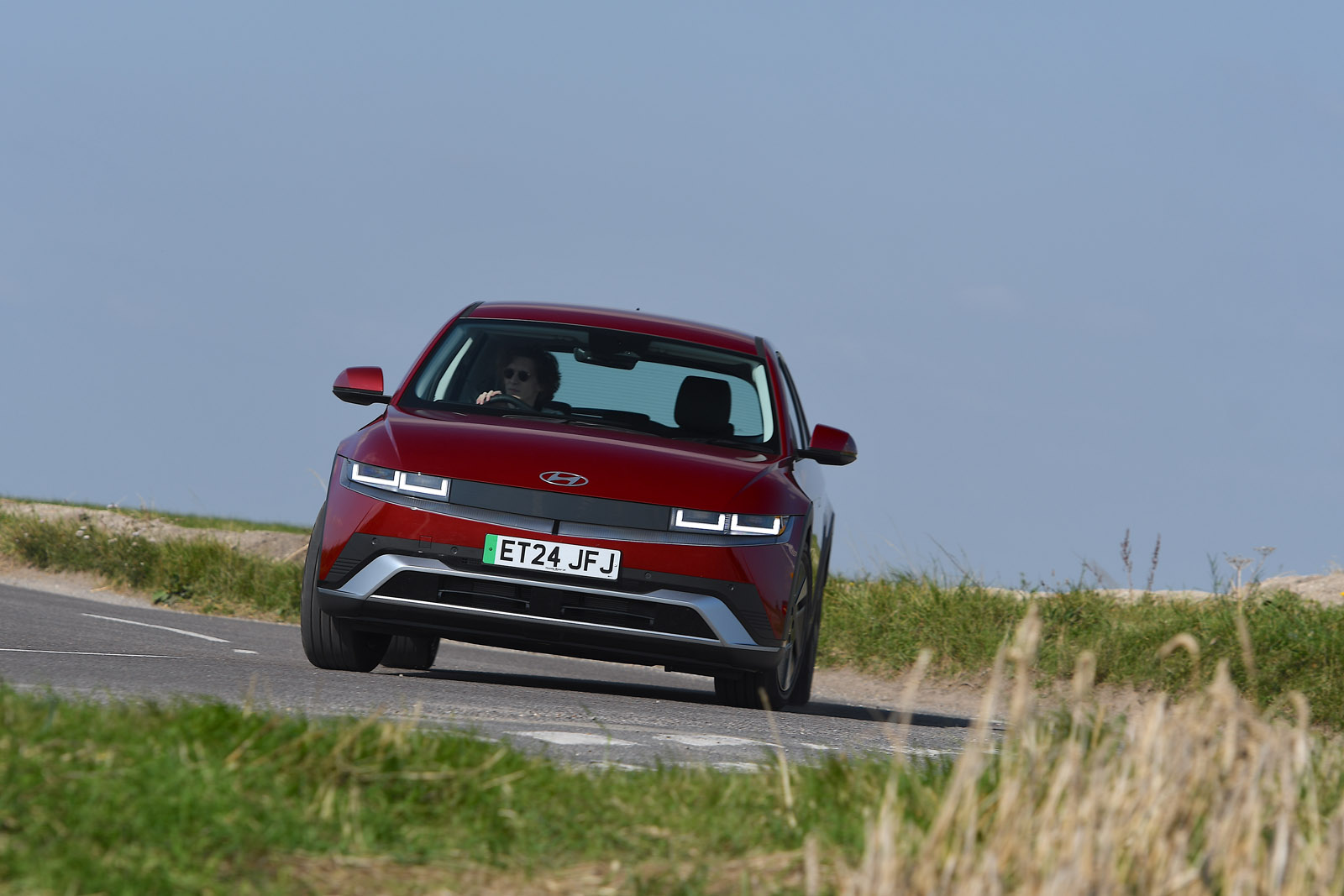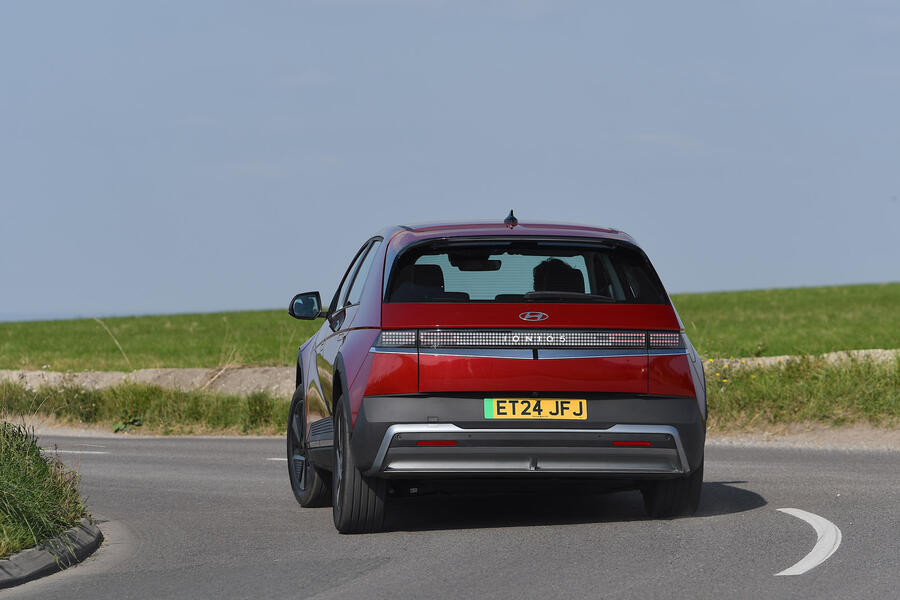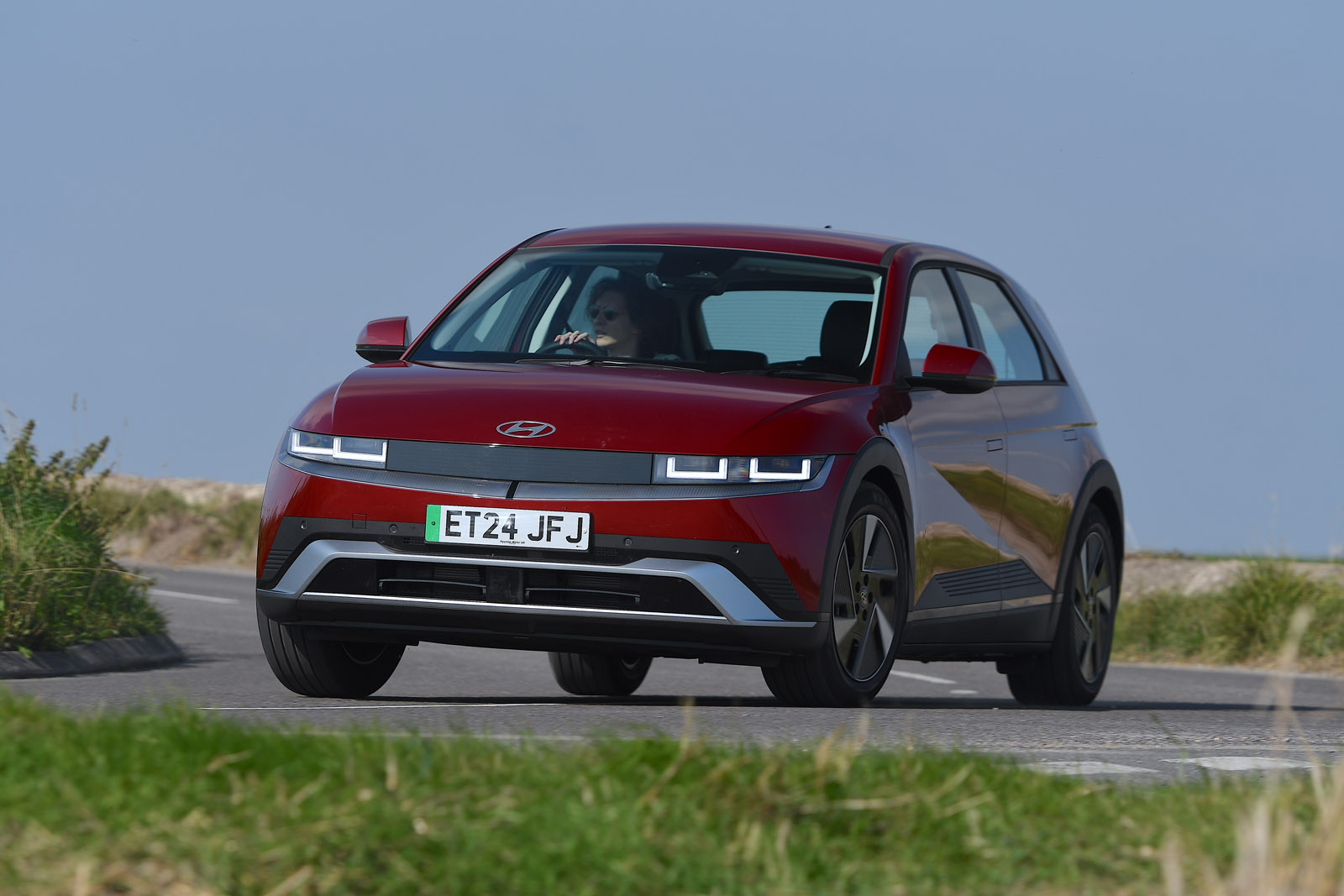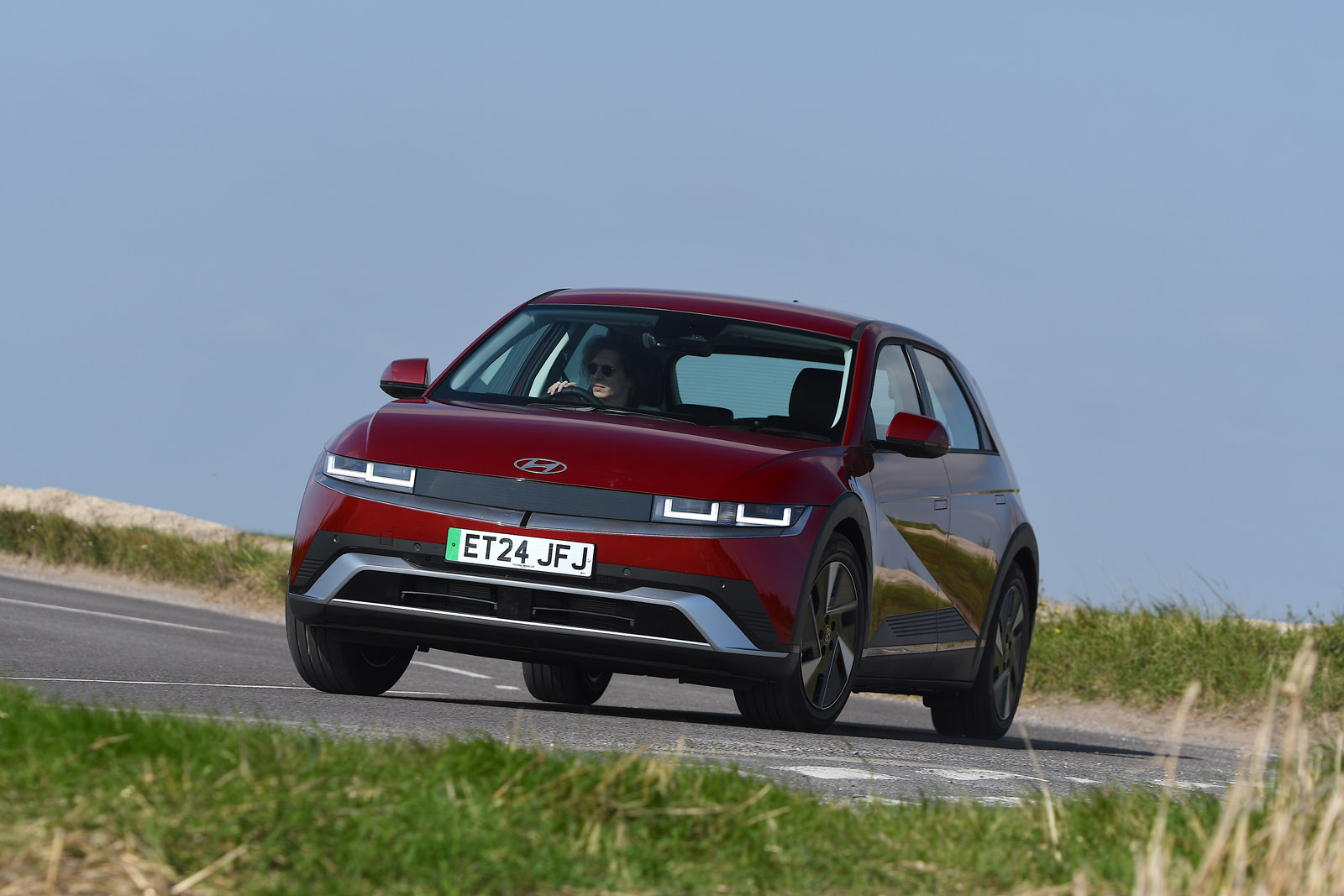‘Designer’ family cars like this one sometimes have key practicality compromises when you explore what usable room and convenience they offer - but the Ioniq 5 opens up to reveal really surprising passenger space and very few noticeable penalties for its outward good looks.
You sit medium-high in the car, with the steering wheel slightly too far away than is ideal for tall drivers, though it’s adjustable. The cabin feels airy, and it gives you a great view out in most directions, but you’re left in no doubt that you’re sitting atop of the car’s skateboard-style drive battery.
The airiness is no illusion either, because the Ioniq 5 is extremely spacious, with plenty of head room and space across the shoulders, while passengers in the back can use the adjustable rear seats and stretch out. Sliding second-row seats make for up to 780mm of rear leg room - as much as a BMW i5 offers, though there isn’t much room under the front seats for the rear passengers’ feet.
A flat floor opens up potential for some neat storage solutions, such as a centre console that slides fore and aft by about 200mm. It was redesigned in 2024 to gain a button panel for the heating and cooling of the seats and steering wheel, which were functions that were previously buried in a touchscreen menu.
With that foible sorted, the Ioniq 5’s user interface has become one of the easiest to use of any modern car. There’s a separate panel for the climate controls, and a generous selection of physical buttons for all the key functions.
Boot space is quite generous by volume (520 litres is only a little behind the Renault Scenic’s 545), but the floor (below which there’s a reasonable amount of room) is quite high and the luggage cover quite low, making the space less usable in practice than it seems on paper.
Hyundai Ioniq 5 multimedia - 4.5 stars
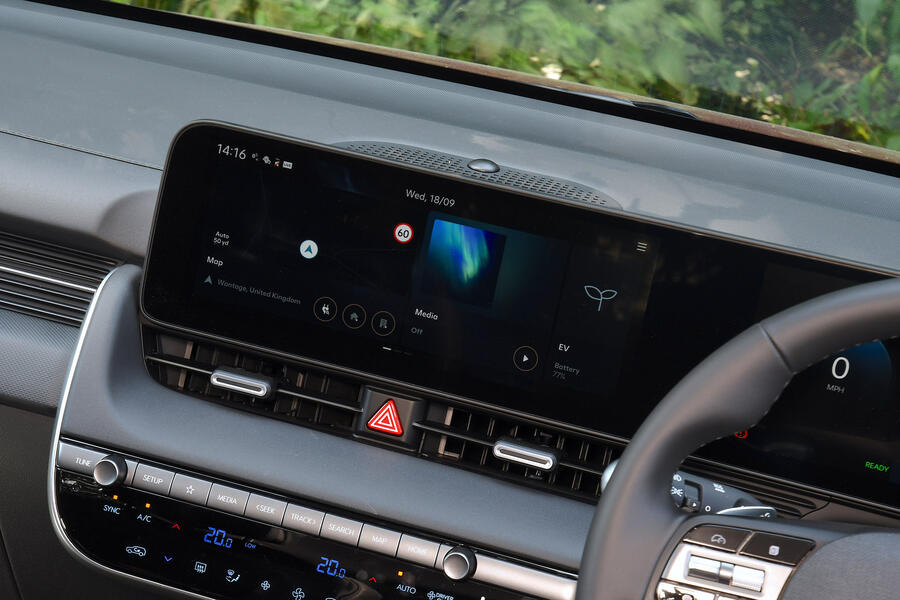
By the time of our 2023 review, the Ioniq 5’s infotainment touchscreen was starting to look and feel a little dated, with no home button, some latency issues, no wireless functionality for Apple CarPlay and Android Auto and the lack of easily accessible controls for the heated seats.
For the 2024 facelift, Hyundai clearly took these criticisms to heart and eradicated all of them. The screen has gained newer, more up-to-date graphics, as well as improved processing power so that it responds quickly to prods and swipes. The update also replaced the quirky graphics on the gauge cluster with more conventional, but clearer alternatives.
The row of physical shortcut buttons remains and there's now a new one that takes you to the home screen. As before, there are two ‘star’ buttons, one on the dashboard and one on the steering wheel, and these can be programmed as a shortcut for a decent number of functions.
As of 2024, you no longer need a wire to charge or connect with Apple CarPlay and Android Auto. The old USB-A ports have also been replaced with USB-Cs.




